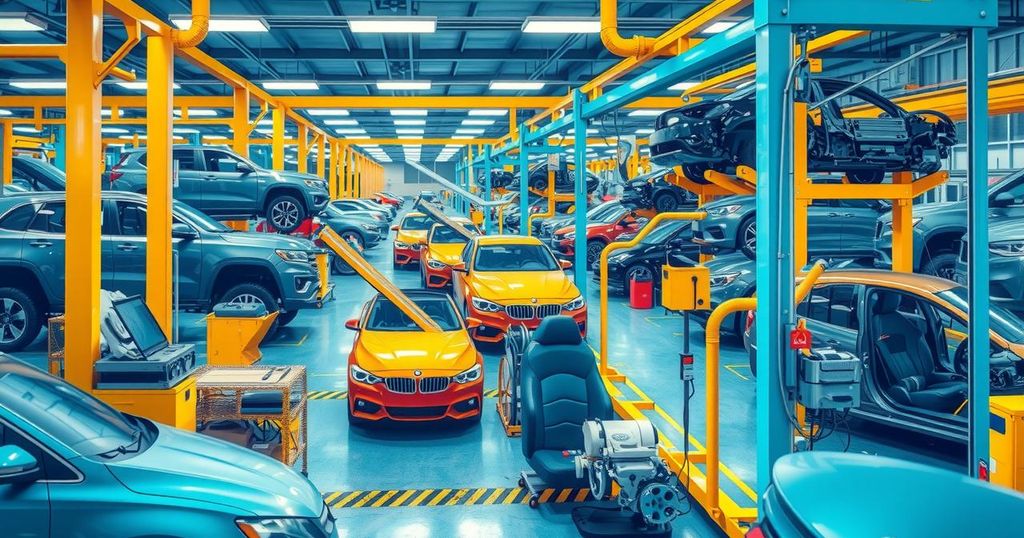Impact of U.S. Tariffs on Thailand’s Auto Parts Exports

The Thai Finance Minister warns that new U.S. auto tariffs will negatively impact the country’s auto parts exports. Negotiations for direct shipments to the U.S. may help, but the overall situation remains uncertain. Local manufacturers like AAPICO Hitech anticipate limited effects as they primarily serve Japanese automakers not exporting to the U.S.
Bangkok’s Finance Minister, Pichai Chunhavajira, announced that Thailand’s auto parts exports will be adversely affected by the recently imposed U.S. tariffs. He expressed the intention to negotiate direct shipments of parts to the U.S. instead of exporting through manufacturers in other countries. This concern arises as Thailand stands as Southeast Asia’s largest automotive production hub, serving major global automakers such as Toyota and Honda.
President Donald Trump has implemented a 25 percent tariff on imported vehicles, escalating a global trade conflict that has drawn criticism and threats of retaliation from affected nations. Minister Pichai noted that these tariffs would diminish Thailand’s auto parts exports to other nations that manufacture automobiles. He remarked, “We will have to see how much it will affect us,” emphasizing the importance of negotiations for direct shipments to the U.S.
Yeap Swee Chuan, CEO of AAPICO Hitech, one of the largest auto parts manufacturers in Thailand, indicated that the tariff’s impact may be minimal. He stated that most vehicles produced locally cater to Japanese companies, which do not typically export to the U.S. AAPICO’s exports to the U.S. represent a small fraction of its overall production, making it challenging to send parts to the U.S. amidst the new tariffs.
Looking ahead, Minister Pichai mentioned that other products might face tariffs as announced by Trump next week, but he believes these will not have an immediate effect. He remarked, “We still have time to see which ones will be affected and how we will negotiate. Let’s wait and see.” There are growing concerns regarding potential U.S. tariffs due to Thailand’s significant trade surplus with the United States.
In summary, Thailand’s Finance Minister indicated that U.S. tariffs would lead to challenges for the nation’s auto parts exports. Negotiations for direct shipments are essential to mitigate the impact, especially as Thailand serves a pivotal role in the global automotive sector. While some manufacturers may see limited effects, the overall concern remains regarding the potential fallout from further tariffs due to the trade surplus with the U.S.
Original Source: www.channelnewsasia.com




